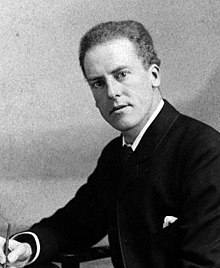 Karl Pearson is one of the most important figures in the history of statistics, often referred to as the father of modern statistics. Born on March 27, 1857, in London, England, Pearson is known for his significant contributions to the development of various statistical techniques that are still widely used today. One of his greatest contributions was the development of the Pearson correlation coefficient and the chi-square distribution, both of which are foundational in many statistical applications and hypothesis testing.
Karl Pearson is one of the most important figures in the history of statistics, often referred to as the father of modern statistics. Born on March 27, 1857, in London, England, Pearson is known for his significant contributions to the development of various statistical techniques that are still widely used today. One of his greatest contributions was the development of the Pearson correlation coefficient and the chi-square distribution, both of which are foundational in many statistical applications and hypothesis testing.
The Pearson correlation coefficient is one of Pearson’s major achievements. This technique is used to measure the extent of the linear relationship between two variables. With values ranging from -1 to 1, the Pearson correlation coefficient indicates the strength and direction of the relationship between the variables. Pearson developed this method in the late 19th century and made it more systematic, allowing researchers to quantify relationships between variables in a more accurate and mathematical way. Before this coefficient, researchers struggled to measure relationships between data numerically, and Pearson offered a clear and reliable approach.
Additionally, Pearson introduced the chi-square distribution, which is used in hypothesis testing to evaluate how well the observed data fits the expected distribution. The chi-square distribution is crucial in statistical analysis, especially in goodness-of-fit tests and tests of independence in contingency tables. This concept has become a key tool in inferential statistics, especially for categorical data and research in social sciences, biology, and medicine.
In his time, Pearson was also known for introducing various statistical tools used to describe data quantitatively. He developed standard deviation and variance, important measures of data dispersion. As a scientist who understood the importance of accurate data collection and deep analysis, Pearson laid the foundation for the use of statistics in scientific research. The methods he developed help researchers make better decisions and avoid errors in data interpretation.
Pearson also played a vital role in the development of mathematical statistics. He founded the Biometric Institute at University College London, which became an important center for statistical research in England. Pearson also developed various foundational concepts in data analysis and statistics that are now used across many disciplines, including social sciences, genetics, economics, and psychology. Even more than a century after his contributions, many of the methods Pearson developed are still taught at universities worldwide and applied in both scientific research and industry.
Pearson’s contributions not only impacted the development of statistics as a science but also introduced more practical applications of statistics in the real world. His work helped pave the way for researchers to better understand data and make decisions based on more informed evidence. Through the Pearson correlation coefficient, chi-square distribution, and other statistical concepts, Pearson left a significant legacy in the world of statistics and data analysis.
Karl Pearson passed away on April 27, 1936, but his contributions to statistics remain influential and are still valued today. The techniques he developed continue to be a critical part of almost every modern statistical analysis. Pearson was not just a mathematician but a scientist who shaped the way we think about data and statistics across various fields of research.
Keywords: Pearson Correlation Coefficient, Chi-Square Distribution, Mathematical Statistics
References:
- Wikipedia – Karl Pearson: https://en.wikipedia.org/wiki/Karl_Pearson
- Biographical Dictionary of Eminent Statisticians by C.C. Heyde and E. Seneta: https://www.springer.com/gp/book/9781402004712
 Author : Meilinda Roestiyana Dewy
Author : Meilinda Roestiyana Dewy
Photo Source: Wikipedia
